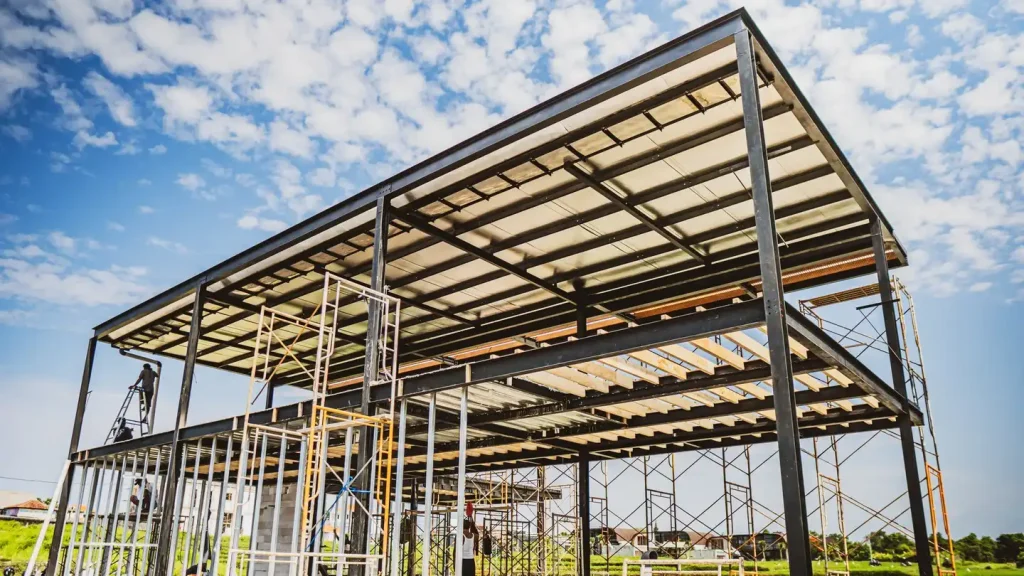Bali ranks as the second most popular destination in the world. And here’s more good news: since 2010, foreigners have been legally allowed to buy and invest in property here.
That’s why many people are now looking for in finding affordable land or villas with stunning views in Bali. However, the buying process is quite different from what you may be used to in other countries.
To help you avoid costly mistakes, we’ve created this guide based on our as 14+ years of experience as local real estate agent. Here’s how to buy villas in Bali safely as a foreigner!
Key Takeaways
- Foreigners can buy property in Bali through leasehold (25–30 years) or by setting up a PT PMA for freehold ownership.
- Work with trusted real estate agent to handle legal, construction, and full property management stress-free.
- Create an investment plan based on your goals. Choose the right property type and location, conduct proper due diligence, and manage your villa regularly to maintain its value.
Want a Bali villa that stands out? Discover Ilot Property Bali’s luxury designs here

Get a Customized Investment Plan in Bali
With over 12+ years in the market, here’s what we can do for you:
- Find the best location to invest in Bali.
- Reliable guidance on Bali’s property market and laws.
- Personalized strategy to maximize returns and meet your financial goals.
1. Understand the Local Law Before Buying Property in Bali
When looking to buy property in Bali, you’ll quickly come across two main types of ownership: freehold vs leasehold.
- Freehold (Hak Milik): The full dan lifetime property ownership. However, this option is only available to Indonesian citizen according to Indonesian law No. 5 from 1960 on Basic Agrarian Principles.
- Leasehold (Hak Sewa): You have the legal right to use the property for 25–30 years, with an option to extend. The land stays with the owner, but you can live in, lease, or rent out the property during that time.
Leasehold is the easiest way for foreigners to invest in Bali real estate.
If you want to legally own a building under a freehold title, you’ll need to set up a foreign-owned company, known as a PT PMA (Penanaman Modal Asing).
Alternatively, you can invest as an individual but only under a different ownership title, such as Hak Pakai or HGB.
2. Find a Property to Buy

In Bali, you’ll mostly find land and villas, though apartments are becoming more common in 2025.
With so many property types available, you need to think carefully before deciding whether to buy land or a house —because the approach may be different. Here are some key questions to consider:
- What are your lifestyle and daily needs? — If you have family (school-age kids or elderly parents), it’s best to choose a property with easy access to public amenities.
- What are your goals? — Each part of Bali offers something unique. For example, Canggu and Seminyak are lively with beach clubs and nightlife; Ubud offers a peaceful jungle vibe; while Uluwatu is known for its cliffs and white-sand beaches.
- What are your budget and investment goals? — If you’re aiming for passive income, a turnkey villa investment is the easiest paths. You can become a luxury villa owner in Bali with just a 10% down payment.
- What type of property are you looking for? — Different property types suit different purposes:
- For personal use: Prioritize comfort, location, and design that matches your lifestyle. Quiet areas like Ubud or beachfront spots in Tabanan may be ideal.
- For investment: Prioritize areas with high rental demand like Canggu or Seminyak. Off-plan villas can help to maximize ROI.
- For mixed use (part-time stay, part-time rent): Flexibility matters. Make sure the property is legally allowed for short-term rentals and can be managed while you’re away.
3. Financial Planning and Costs

Plan your finances before buying land or a home in Bali. Since foreigners can’t get local loans easily, you’ll need to pay with cash.
How much does it cost to buy a property in Bali? Here are the main costs categories you should plan for:
- Purchase Price: The main cost of buying your land or villa. It’s usually the largest cost.
- Taxes: The amount of tax depends on how you buy the property. If you buy through a foreign-owned company (PT PMA), expect around 10% tax. Buying as an individual might come with higher taxes.
- Ongoing Costs: The money to maintain your property, like repairs, cleaning, or community fees if you live in shared areas like a swimming pool or garden.
For example, in central areas like Canggu or Seminyak, 100m² can cost up to $125,000. In remote spots, you might find land as low as $150 per 100m².
Pro Tip: It is often cheaper to buy an off-plan villa or land.
You can explore all off-plan villa listings at Bali Villa Realty by Ilot Property and find the best options by location, price, and style.
Read More: How Much Does It Cost to Build a Villa in Bali?
4. Complete Due Diligence Report

Due Diligence, or a property title background check, is the most crucial step. It helps you avoid legal issues, unpaid taxes, or fake ownership claims.
Ask the owner to show you these important documents:
- Original Hak Milik Certificate: Do not accept copies, as only the original document confirms ownership rights.
- ID Documents: A copy of the seller’s and their spouse’s Kartu Tanda Penduduk (KTP). The names should match those listed on the Hak Milik Certificate, Family Card (Kartu Keluarga/KK), and Marriage Certificate (or Death Certificate if the spouse is deceased).
- PBB Tax Payment (SPPT PBB): This proves that the land tax has been paid and there are no outstanding payments.
- NPWP: The seller’s official tax identification number in Indonesia.
It is also important to confirm the land zoning according to Indonesian law. The zoning rule determines how this land can be used, for example:
| Zoning Type | Description | Popular Locations |
|---|---|---|
| Green Zone | Agricultural land only. Building is highly restricted and often not allowed for residential use. | Ubud, Nusa Dua, Sanur, Mount Batur, Amed, Lovina |
| Yellow Zone | Mainly for agricultural use but can be converted to residential with proper permits. | Ubud, Jimbaran |
| Orange Zone | Residential zone for housing and apartments. Suitable for locals and expats. | Denpasar, Kerobokan, Pererenan |
| Commercial Zone (Red) | For business purposes like shops, offices, and villas for rent. | Denpasar, Seminyak |
| Pink Zone | Tourism-focused areas allowing hotels, resorts, and villas for visitors. | Kuta, Seminyak, Nusa Dua, Uluwatu, Jimbaran, Canggu, Amed |
| Special Economic Zone (SEZ) | Designated for investment and development, offering tax incentives and business privileges. | Sanur, Nusa Penida |
5. Apply for the Right Building Permit (PBG)
Buildings in Bali require a special building permit. One is PBG (Persetujuan Bangunan Gedung), formerly known as IMB.
IMB mandates property owner to apply for a permit before starting a building, and it could take a few months to process.
Today, the rules for PBG have changed. It no longer needs to be applied before construction begins, as it now outlines the technical requirements a building must follow.
Keep in mind that Indonesia’s rules can change fast and tend with little notice, so stay updated.
6. Sign Contract and Transfer Money
Signing contract is only legal in the presence of a certified notary, who will revise, sign, stamp, and register your agreement.
Next, you can do the payment. Full payment is due upfront for completed villas, while off-plan projects follow a structured payment schedule throughout the construction process.
7. Build Your Future Property

If you buy land, the next step is construction. But don’t worry, you don’t have to handle it alone. Most foreigners hire a villa construction team, like Ilot Property Bali, to manage the entire project.
Our team handles everything from land sourcing and legal documentation to taxes, using optimal villa layouts we’ve developed over the years.
We build with high-standard materials like micro-piles, cavity floors, steel beams, and double-layer walls for long-lasting comfort.
In just 10 months, you can have a luxury villa ready to live in or rent out.
8. Hire a Property Manager
Here’s what many foreigners forget when owning property overseas: having a villa isn’t enough.
Your property needs regular care to maintain its value—especially in Bali, where tropical weather can be tough on buildings, and government regulations may change and require your attention.
Managing a villa is easier if you live on-site, but many foreign owners don’t. That’s why we highly recommend hiring a professional villa management team.
Not all agencies offer this support, but the good news is, Ilot does. Our full-service villa management includes:
- No sign-up fees
- 24/7 guest support in 5 languages
- Marketing and booking management
- Tax reporting
- Regular maintenance and villa checks
Let us take the stress out of managing your investment.
Real Stories: Buying Property in Bali with Ilot Property
Building and managing a villa in Bali can be challenging, especially for foreigners doing it alone. That’s why Ilot Property Bali offers an all-in-one service to make the process easier.
We help our clients every step of the way, from planning and construction to full property management. With our guidance, they’ve been able to invest legally and safely in Bali, just like the success stories below:
We’ll help you understand your options and find the best deals, including guidance on government grants and schemes for first-time home buyers.
The best part? You can sit back and earn maximum returns on your investment, whether you’re living in Bali or managing remotely.
Interested in learning more? Contact our team for a free consultation here and ask us anything—no pressure, no obligation.
FAQ
1. Can you live off $1000 a month in Bali?
Yes, with smart budgeting, living on $1,000 per month in Bali is doable and can still offer a comfortable lifestyle.
2. Is it worth buying a villa in Bali?
Absolutely. Purchasing a villa in Bali can be a valuable investment—combining lifestyle perks with strong potential for financial returns.
3. What is the difference between a villa and a house in Bali?
Villas are typically more luxurious and designed for vacation stays—often featuring pools, gardens, and beachside locations. In contrast, houses are more basic and intended for everyday residential living.
4. How much rental income can be generated from a villa in Bali?
Villas located in high-demand areas of Bali can earn impressive rental returns, with some generating annual yields of 15–18%.
Conclusion: Steps to Buy Property in Bali from Abroad
To sum up, buying property in Bali as a foreigner safely and legally involves several key steps:
- Submit the required property acquisition forms to the Indonesian National Land Office (BPN), along with all necessary documents. This is usually handled by your local agent or consultant.
- Show proof of land payment and fulfill the requirements for obtaining a Hak Guna Bangunan (Right to Build) or Hak Pakai (Right to Use).
- Apply for the Right to Build (PBG) if you plan to construct a property on the land.
- Wait for the BPN to process and issue the property certificate under your company’s name.
After your villa is built, you can move in (with the right visa) or rent it out while you travel.
Remember great villas sell fast in Bali, so don’t wait too long or you might miss your dream property.


